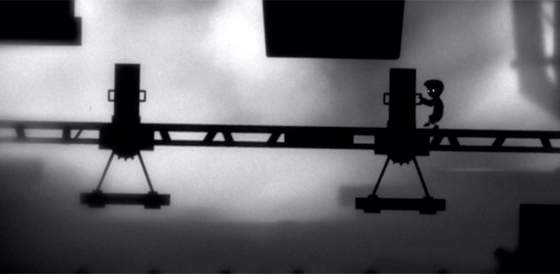Best of the Independent Games Festival 2011
Indie games take on the established genres.
Overview
Now in its 14th year, the Independent Games Festival recognises some of the most innovative leaps in video game development, all coming from independent publishers and developers from around the world. Though based in San Francisco, the IGF has teamed up with Sydney Opera House's Graphic Festival to present the pick of this year's featured titles.
The first thing you'll notice when you arrive at the western foyer of the SOH is that the Best of the IGF is laid out with almost no ceremony. Large monitors sit at tables scattered around the foyer, with tiny little printouts detailing the rules and publishing information for the games you can play at each station. If you weren't looking specifically for this, you'd miss it completely, which is a real shame because the games on show here are an inspiring vision of the evolution of the art form. It is disappointing as well to notice that not much care seems to have been given to the maintenance of the layout — several games were not working when I came to play — and there is no easily found information about where you can purchase those games that have been commercially released.
Having said that, the Best of the IGF offers a fantastic taste of ingenuity. One noticeable feature of the games on offer is that they have taken an established genre — such as 2D platformer, dungeon crawl and first-person horror survival — and switched their emphasis from a basic hack/slash to immersive problem-solving.
Pick of the bunch for me is the terrifying Amnesia: The Dark Descent (see video), produced by Frictional Games in Sweden. You play as Daniel, an amnesiac who wakes up in a collapsing castle with the imperative to reclaim your memory and get the hell out of there. The only way to do this is to solve complex, object-based puzzles and read scraps of information left around the castle. But...oh...fa...the castle is crawling with psychotic, brain-melting horrors that will hunt you down and render you into gristle. These nightmares stalk you relentlessly, and poor Daniel's mind can only handle so much insanity before he becomes a whimpering sack of catatonia. Without any way of fighting these monsters, you must run and hide, huddle, close your eyes and pray that it'll be over soon. The soundtrack is so detailed and real that it's only a matter of time before a player has an actual heart attack when first chased through the dark corridors.
A close second, and with a very different vibe, is Alexander Bruce's Antichamber. A koan, an exploration of non-Euclidean space; I am not sure exactly how to define this treasure. Again using the first-person perspective, you are given the option to navigate through a metaphysical space where all of your previously held understanding of video game conventions must be put aside. Parts of this game seem like Portal 2, but without the ability to make your own portals, and the puzzles are open-ended with even the most dire-seeming failures consoled with a continuing path.
Also worthy of note is Playdead's Limbo. Using some very simple, but intuitive, physics, you guide a silhouette boy through a two-dimensional limbo. There is a dark, twisted sense of humour throughout the game, with the boy capable of grim, cartoon death at the hands of bear-traps and Burtonesque spiders.
Ignore the poor layout and occasional malfunction — take a trip to the western foyer and play these games. Then support the indie scene by chasing them up online and purchasing your favourites.
https://youtube.com/watch?v=yyHtk_ZhZAk





